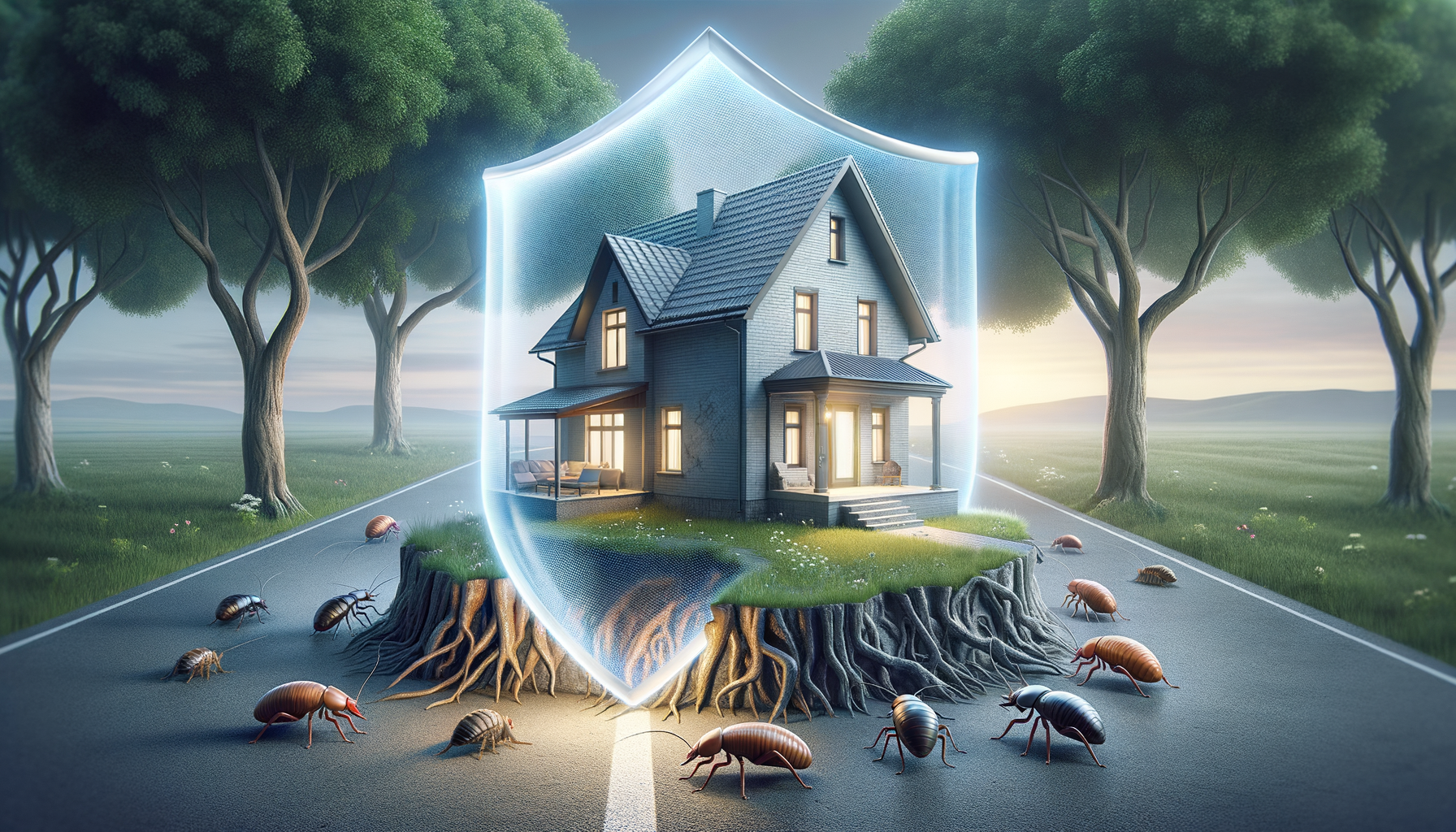Guarding Your Home: An In-Depth Guide to Pest Control
Effective pest control is essential for maintaining a healthy and safe living environment.
Understanding the Importance of Pest Control
Pest control is a crucial aspect of maintaining a safe and healthy living environment. Pests such as rodents, insects, and other wildlife can pose significant health risks and cause extensive property damage. Understanding the importance of pest control begins with recognizing the potential threats these creatures pose. For instance, rodents are known carriers of diseases such as hantavirus and leptospirosis, which can be transmitted to humans. Insects like mosquitoes and ticks are vectors for diseases such as malaria and Lyme disease. Furthermore, pests can cause structural damage to homes, as termites are notorious for compromising the integrity of wooden structures.
Implementing effective pest control measures can prevent these health risks and protect property investments. Regular inspections and timely interventions can mitigate the risks associated with pest infestations. By understanding the behavior and habitat of pests, homeowners can take proactive steps to prevent infestations. This includes maintaining cleanliness, sealing entry points, and eliminating sources of food and water that attract pests. Ultimately, effective pest control is not just about eliminating pests but also about creating an environment that deters their presence.
Common Types of Pests and Their Impact
The world of pests is vast, with each type posing unique challenges and impacts. Common household pests include rodents, insects, and wildlife. Rodents, such as mice and rats, are notorious for contaminating food sources and spreading diseases. They can also cause structural damage by gnawing on electrical wiring, which poses a fire hazard. Insects, including ants, cockroaches, and termites, can infest homes in large numbers, leading to significant discomfort and damage. Termites, for example, can silently destroy wooden structures, leading to costly repairs.
Wildlife such as raccoons and squirrels can also become a nuisance, especially when they find their way into attics or basements. These animals can cause damage by chewing through insulation and wiring, and their droppings can create unsanitary conditions. Understanding the specific behaviors and habitats of these pests is essential for effective control. This knowledge allows for targeted interventions that address the root causes of infestations rather than just treating the symptoms.

Preventive Measures: Keeping Pests at Bay
Prevention is the cornerstone of effective pest control. By implementing preventive measures, homeowners can significantly reduce the likelihood of infestations. One key strategy is to eliminate potential entry points for pests. This involves sealing cracks and crevices in walls, windows, and doors. Installing door sweeps and repairing damaged screens can also help keep pests out. Additionally, maintaining cleanliness in and around the home is crucial. Regularly cleaning kitchens, disposing of garbage promptly, and storing food in airtight containers can deter pests from seeking food sources indoors.
Landscaping can also play a role in pest prevention. Keeping shrubs and trees trimmed and away from the house can prevent pests from using them as bridges to enter the home. Removing standing water and ensuring proper drainage can deter mosquitoes and other water-loving pests. By taking these proactive steps, homeowners can create an environment that is less inviting to pests, reducing the need for reactive pest control measures.
Pest Control Methods: From DIY to Professional Services
When it comes to pest control, there are various methods available, ranging from do-it-yourself (DIY) solutions to professional services. DIY methods often involve using over-the-counter products such as traps, baits, and insecticides. These can be effective for minor infestations and are generally more cost-effective. However, DIY solutions require careful application and adherence to safety guidelines to avoid harm to humans and pets.
For more severe infestations or persistent pest problems, professional pest control services may be necessary. These services offer expertise and access to specialized equipment and treatments that are not available to the general public. Professionals can conduct thorough inspections, identify the specific type of pest, and implement targeted treatments that address the root cause of the infestation. They also provide ongoing monitoring and maintenance to prevent future infestations. While professional services may come at a higher cost, they often provide more comprehensive and long-lasting solutions.
Evaluating the Effectiveness of Pest Control Measures
Assessing the effectiveness of pest control measures is essential to ensure that the efforts are yielding the desired results. This involves regular monitoring and evaluation of the pest situation. Homeowners should keep track of pest sightings, damage, and any other signs of infestation. Comparing this data over time can help determine if the control measures are working or if adjustments are needed.
Feedback from professional pest control services can also provide valuable insights. They can offer recommendations for improving existing measures or suggest alternative strategies if the current approach is not effective. Additionally, staying informed about new pest control technologies and methods can enhance the effectiveness of pest management efforts. By continuously evaluating and adapting pest control strategies, homeowners can maintain a pest-free environment and protect their health and property.